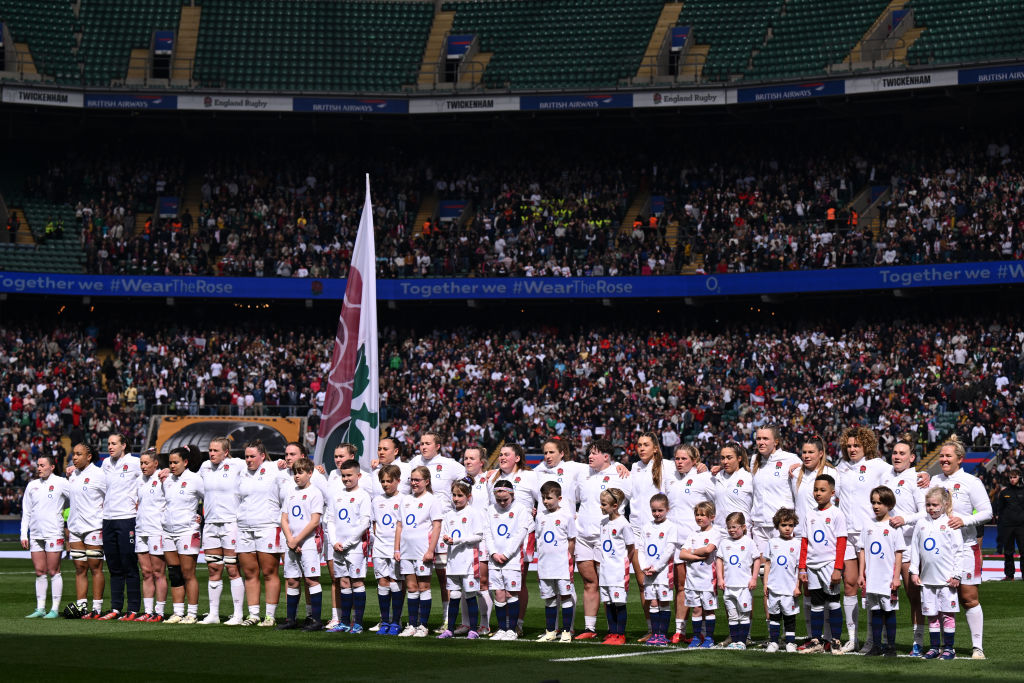With more than 50 players still out of work following the collapse of Worcester and Wasps, the Rugby Players' Association [RPA] insist the players are "the answer to growing rugby".
The RPA also believe players need a Collective Bargaining Agreement with the sport's authorities, like in American sports, to safeguard the game's future.
In a wide-ranging interview, former Sale and Northampton lock Christian Day, now head of player affairs at the RPA, told BBC Sport: "We believe rugby is evolving to the point where players have to be part of the discussion, at the table, as signatories to the agreements.
"Not anymore as a consulted group. If they want to buy into the players as the future of the game, get the players sat at the table with you and have them part of the discussion."
Day says rugby union needs to look at other professional leagues around the world, such as the National Rugby League in Australia and the National Basketball Association [NBA] in the United States, where the players are part of a Collective Bargaining Agreement [CBA].
"Professional sports around the world evolve and develop over time," Day explained.
"Rugby union only turned professional in the mid-90s, the American professional sports turned in the 60s.
"It's a bit of a misnomer to compare yourself to American sports but that is what athletes do, they want to look around the world at the global superstars.
"The athletes in those leagues all have a say, they are all at the table, they are all part of a Collective Bargaining Agreement [CBA], and they want to engage."
The CBA at the NBA, as an example, is a 600-page document which includes stipulations such as a minimum wage, while the salary cap is fixed as a percentage of the league's revenue.
"That percentage ranges from the NRL to the American sports but it comes back to a fair deal," Day said.
"What number are we going to set, how are we going to protect our low earners and Academy kids, and at the same time ensure our leading players' welfare is protected and they earn money that represents a fair value?"
Day is a firm advocate of a minimum wage, which would assist academy players at the start of their careers, and rails against the suggestion wage inflation has been a major contributor to English rugby's financial crisis.
He also stresses that the vast majority of out-of-work players from Worcester and Wasps will need to return to work in some shape or form as a matter of urgency.
"One of the biggest misconceptions of professional rugby is that everyone is on a six-figure salary," Day said.
"I can strongly refute that. There are countless Premiership players on sub-50k and countless academy players on sub-20k.
"It's not like [Wasps and Worcester] players can just sit there and survive on all the money they've built up over the years; that is not the case.
"A lot of messaging recently has been that players are part of the blame and that players earn too much, and that is the solution: the players should earn less.
"The product the players are putting on the pitch currently is outstanding. We have an incredibly competitive Premiership, high-scoring and close games.
The players deserve some credit here. I would really caution against the players being part of the problem.
"One thing I am particular keen on is a minimum wage - I think that would be a really positive step to protect some of those lower earners.
"If we are talking about academy players, it has to be something that is liveable. If we are going to make young players professional athletes then they need a wage they can live off."
Following the demise of Worcester and Wasps, both the Rugby Football Union and Premiership Rugby have promised a root-and-branch review of the way the sport is governed.
A slimmed-down Premiership, a revamped second-tier, and tighter financial regulation are all potential outcomes from the crisis, while the level of the salary cap, currently at £5m, is under constant review.
"Going forwards now, this is why the players need to be at the table," Day added.
"If we are going play in a capped league, I think the players need to part of the discussions as to where we are going to set the cap and why. What is the metric we are going to use, and how it is going to grow over time?
"I think we need to show a bit of trust in the players that they can come to the table.
"Unless people listen to their ideas we will never know. We should absolutely be asking some of those senior guys what is their perspective."















